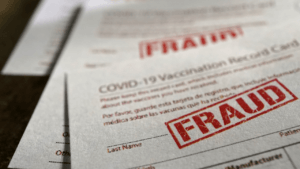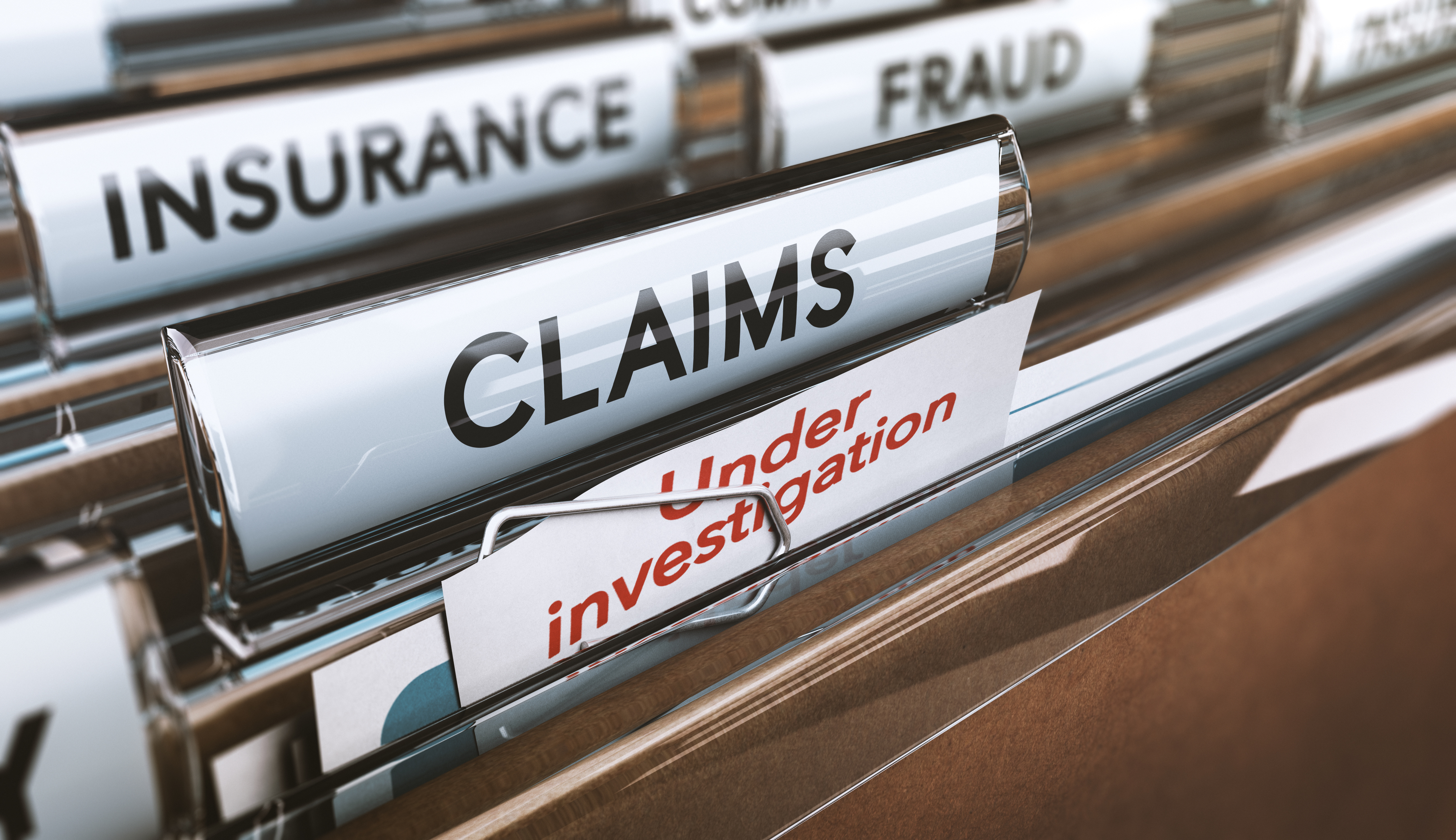
Insurance fraud affects the innocent and guilty alike. Investigating an insurance fraud claim is a very expensive endeavor. When insurance companies raise their rates, it can often be attributed to the time and money spent investigating and prosecuting false insurance claims.
Insurance fraud is a serious crime and New Jersey has some of the nation’s toughest insurance fraud laws. Anyone being charged with defrauding an insurance company in New Jersey should know that the case is going to be investigated and prosecuted aggressively. In fact, the state has set up a separate office that specifically handles prosecuting insurance fraud cases. It is known as the Office of the Insurance Fraud Prosecutor.
For these reasons, any person who is charged with insurance fraud in New Jersey needs the help of a skilled defense attorney.
 What Is Insurance Fraud?
What Is Insurance Fraud?
Under the New Jersey Code of Criminal Justice 2C:21-4.6, an insurance fraud offense occurs when someone knowingly omits a material fact or makes a false or misleading statement to an insurance company. In this state, insurance fraud is a crime and is considered a third-degree felony. Multiple instances of insurance fraud can be a second-degree offense with even stricter penalties.
When a claim is filed, any information that is provided in the application itself or thereafter that misleads the insurance company in order to acquire insurance money or acquire a renewal in policy is considered fraud.
In 2012, Hurricane Sandy left a path of destruction through most of New Jersey and other parts of the east coast. This means that insurance companies had to process millions of claims made by homeowners and many of those claims involved false or misleading statements. Contractors also took advantage of the storm’s aftermath by targeting unsuspecting homeowners and exaggerating the amount of damage on insurance claims.
In April 2020, more than 730,000 New Jerseyans were collecting unemployment as a result of the COVID-19 lockdown. It is inevitable that some individuals may have claimed that they were out of work when, in fact, they were able to work small jobs on the side. To falsely obtain unemployment benefits in New Jersey can also expose one to charges of insurance fraud.
 Penalties and Fines
Penalties and Fines
Most instances of insurance fraud are third-degree crimes in New Jersey. Those convicted can face up to 5 years in prison and fines of up to $15,000.
Those who commit five or more acts of Insurance Fraud with a total aggregate value of more than $1,000 can be charged with a second-degree crime. A conviction can mean up to 10 years in prison and up to $150,000 in fines.
In addition to these penalties, a person can be ordered to repay the money that was fraudulently obtained.
What Are Other Types of Insurance Fraud?
Insurance Fraud can occur with respect to any type of insurance including auto, health, life, worker’s compensation, homeowner, and Medicaid or Medicare insurance. Types of fraud include:
- False Worker’s Compensation claims
- False or misleading property loss claims
- Arson for profit
- Staged car accidents for insurance settlements
- Health care claims fraud
- Falsely obtaining unemployment insurance benefits while working
- Collecting an insurance check for small accidents without fixing the vehicle
- Home repair fraud
- Stolen car scams
- Unnecessary medical procedures
 How to Beat an Insurance Fraud Charge
How to Beat an Insurance Fraud Charge
Miscommunications and errors on paperwork can lead to charges of insurance fraud. While these mistakes may be innocently done, they can still result in a conviction without the help of an attorney.
To beat insurance fraud charges, one must show that the alleged errors are correct and accurate. Alternatively, one could show an effort to correct the errors was made by the accused.
In other instances, an attorney could attempt to suppress evidence, preventing it from being used in court. For example, if any evidence is obtained without consent of the accused or a warrant can be barred from being presented to a jury. This would make it difficult for the prosecution to fully prove its case—remember, one is innocent until proven guilty beyond a shadow of a doubt. In some cases, it may be possible to submit exculpatory evidence, meaning evidence that contradicts the prosecution’s claims.
It is important to realize that, even when innocent, the best course of action can still be to negotiate with prosecutors to reduce the charge to a lesser offense. In such scenarios, the goal is to minimize or eliminate jail time, as well as to mitigate the potential impact on current or future employment.
How an Insurance Fraud Conviction Affects Employment
Any felony conviction can have a negative impact on one’s job prospects. While not a violent offense, insurance fraud is a crime that reflects negatively on a person’s honesty and trustworthiness. Hiring managers may think twice about whether the person can be trusted to handle money in a cash register, valuable equipment or goods, or to correctly and honestly fill out paperwork.
To avoid this, a person should hire a skilled criminal defense attorney to help reduce the chances of a conviction. This can be done by enrolling in a diversionary program, negotiating to reduce the charges to a lesser offense (plea deal), or beating the charges at trial.
 Expunging Insurance Fraud Convictions
Expunging Insurance Fraud Convictions
Although it is a felony, insurance fraud is an expungable offense. This means a person could potentially have the conviction removed from his/her criminal record. Keep in mind that the expungement process is not easy and there are many disqualifying factors.
For example, a person can only have one felony (also called an indictable offense) conviction on their record before petitioning for an expungement. In addition, one cannot have more than three disorderly persons offenses.
It is highly advised that one speak to an attorney before attempting to expunge a criminal record. An attorney will be able to assess whether a person’s record makes one eligible or ineligible to petition. An attorney can also help with the paperwork, ensure all the necessary documents are present, and, in cases when it is required, attend a hearing before a judge on the matter.
 Frequently Asked Questions
Frequently Asked Questions
If the insurer or prosecutor has reason to believe that text messages may prove their case of fraud against a person, a warrant can be obtained to review them. If police, prosecutors, or the insurance company do not follow the proper procedures to obtain text messages then they do not need to be provided.
It is best to avoid speaking to insurance adjusters after an accident. Thankfully, most insurance adjusters are not looking to “catch” instances of insurance fraud—rather, they are usually seeking excuses to reduce the claim amount (which is also bad). However, if tricky questioning by the insurance adjuster results in a charge of insurance fraud, an attorney with experience in such matters can attempt to unravel the “evidence” used to back the charge.
 Who Should I Contact?
Who Should I Contact?
Even mere misrepresentations on an insurance claim can sometimes lead to a criminal investigation. You must remember that you are innocent until proven guilty and that the prosecution must prove their case before obtaining a conviction.
A skilled defense attorney may be able to find holes in the prosecution’s case and weaken the case against you. Hiring the right attorney to provide a strong legal defense is critical to beating the charges especially at the beginning of any criminal investigation.
If you or someone you love are facing insurance fraud charges in New Jersey, contact Rosenblum Law for assistance. Our skilled criminal defense attorneys have helped many people in similar situations. Email Rosenblum Law or call 888-815-3694 today for a free consultation about your case.


